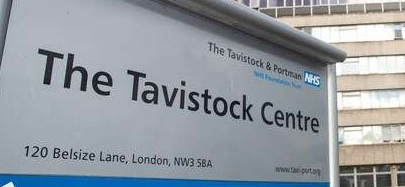
A third of transgender children on puberty blockers suffered mental health problems, a reanalysis of a major study has suggested.
In 2011, a team from University College London Hospitals (UCLH) and the Tavistock’s Gender Identity Development Service – the only NHS specialist gender clinic for children in the UK – embarked on what became known as the Early Intervention Study.
It analysed 44 children between the ages of 12 and 15 undergoing treatment with puberty blockers and concluded “no changes in psychological function” of the children.
{snip}
Original findings
The original findings were based on group averages taken from questionnaires handed out to parents and children.
However, the new analysis is based on individualised results and, gives “greater indication as to variation across participants”, researchers claim.
The new analysis was conducted by Susan McPherson, professor of psychology and sociology in the School of Health and Social Care at the University of Essex and David Freedman, a retired social scientist.
They said: “This complementary analytic approach allows us to look at how a treatment is performing in terms of the percentage of patients improving, deteriorating and showing clinically significant change.
{snip}
The findings, reported by BBC Newsnight, have prompted questions surrounding the original conclusions. They have also been sent to Dr Hilary Cass, who is currently conducting the independent review of gender identity services for children and young people.
Dr Cass’s interim report into children’s gender services, published in February 2022 and submitted to NHS England, highlighted “gaps in evidence” around the use of puberty blockers.
An official review conducted in April 2021 by the National Institute of Health and Care Excellence also found there was little evidence surrounding the use of puberty blockers and that existing studies of the drugs were small and “subject to bias and confounding”.
Review due
The Cass review team said that it will be taking all new research into account in its final recommendations, which are expected by the end of the year.
Both hospital trusts said they welcomed new contributions to the evidence base around how to support young people with gender incongruence.
{snip}
“We also support the proposal that puberty suppressing hormones should only be available as part of a clinical research study with the relevant scientific and ethical approvals.
“We welcome contributions to the evidence base around medical intervention for young people expressing gender incongruence and we will work closely with the new national Research Oversight Board to support the collection and analysis of robust data in this area.”
A spokesman from Tavistock and Portman NHS Foundation Trust said: “We are grateful to all of the clinicians and academics who have contributed to this study over the years, and we welcome new peer-reviewed analyses of the evidence around how to support these young people.
{snip}
The closure of the Tavistock Centre in north-east London, has been delayed to March 2024, about a year later than first planned after it was criticised by Dr Cass. It will be replaced by several regional centres.
* ORIGINAL ARTICLE:
https://www.telegraph.co.uk/news/2023/09/19/tavistock-gender-puberty-blockers-mental-health-study-trans/
